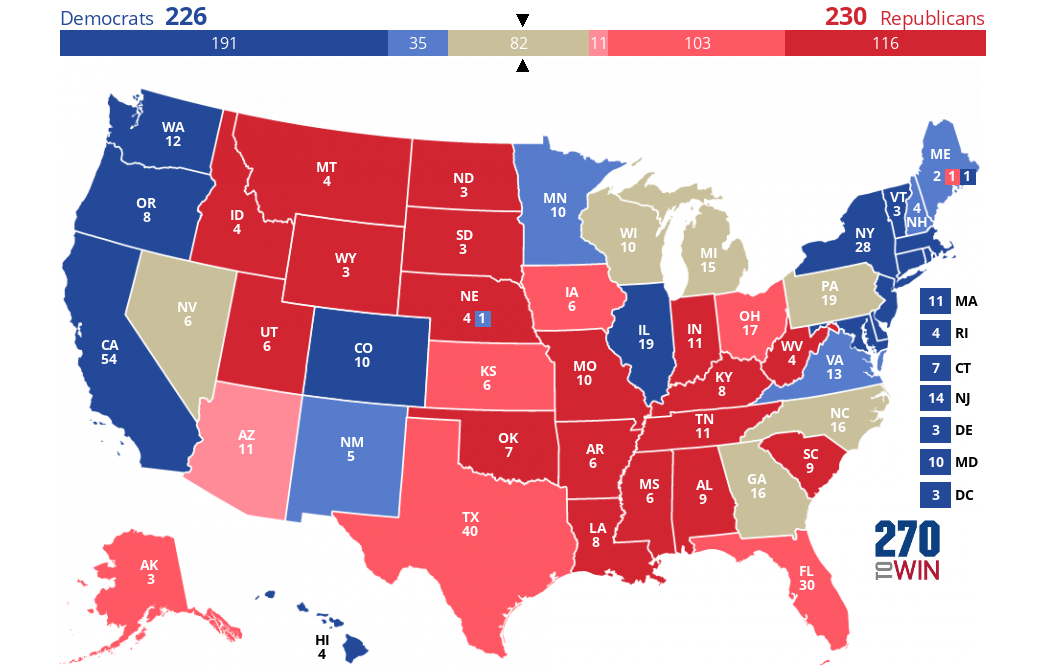Last week, Wisconsin state Rep. Gary Tauchen (R) introduced a bill to change how the state allocates its electoral votes. If enacted, the state would move from the winner-take-all allocation currently used in 48 states to that of Maine and Nebraska. Those two states use the congressional district method, awarding two electoral votes to the popular vote winner of the state and one to the popular vote winner in each congressional district. U.S. Rep. Bill Huizenga (R, MI-02) has suggested his state do the same.
At nearly the same time, Nebraska state Sen. Julie Slama sponsored a bill to switch that state back to winner-take-all. (Slama is a Republican, although the single body Nebraska legislature is officially nonpartisan.)
These proposals seem to pop up after each election. While often couched as fairer, the proposals are almost always partisan in nature, meant to benefit the electoral college fortunes of the party that introduces the bill. That is the case in all the above. The 31 electoral votes associated with the above 3 states went 27-4 for Joe Biden in 2020. If the proposed approaches had been in place, Donald Trump would have received 19 of them to 12 for Biden.

